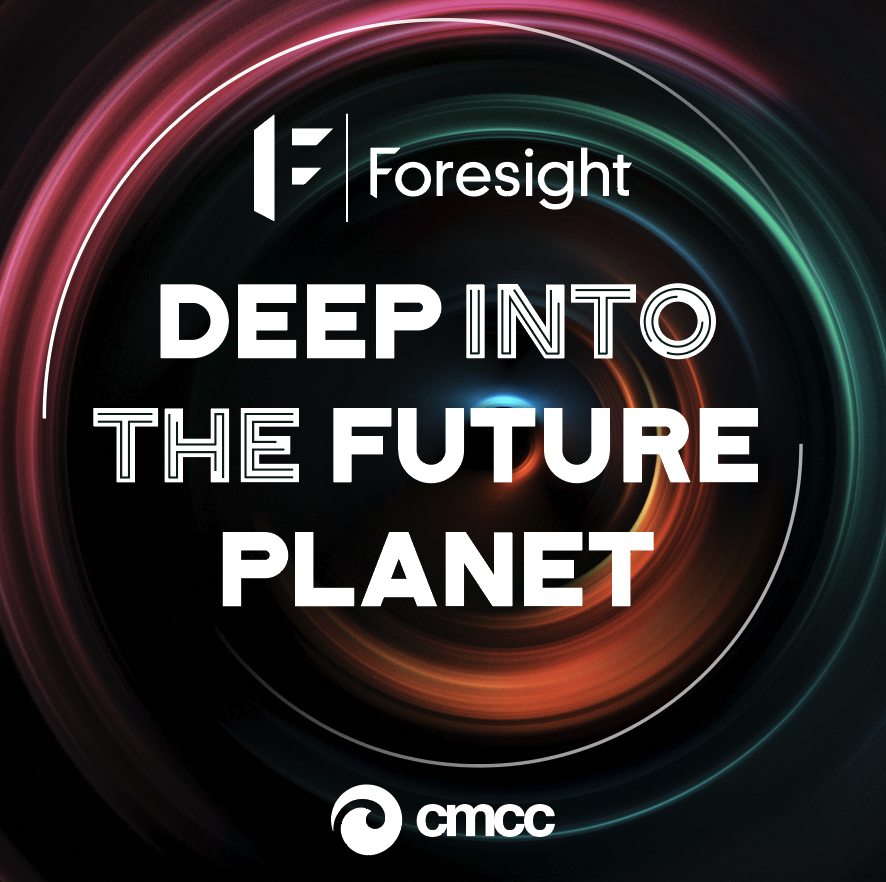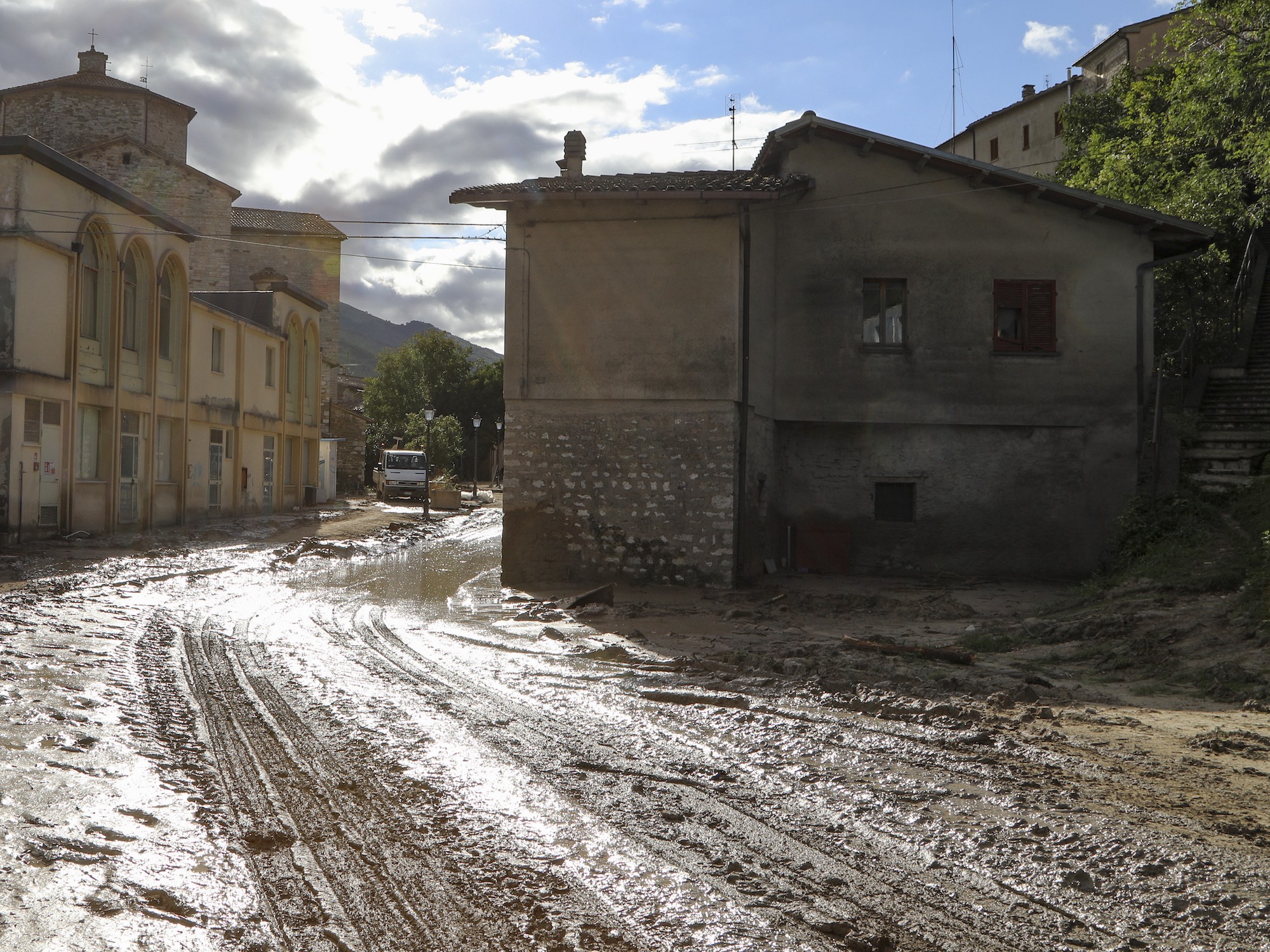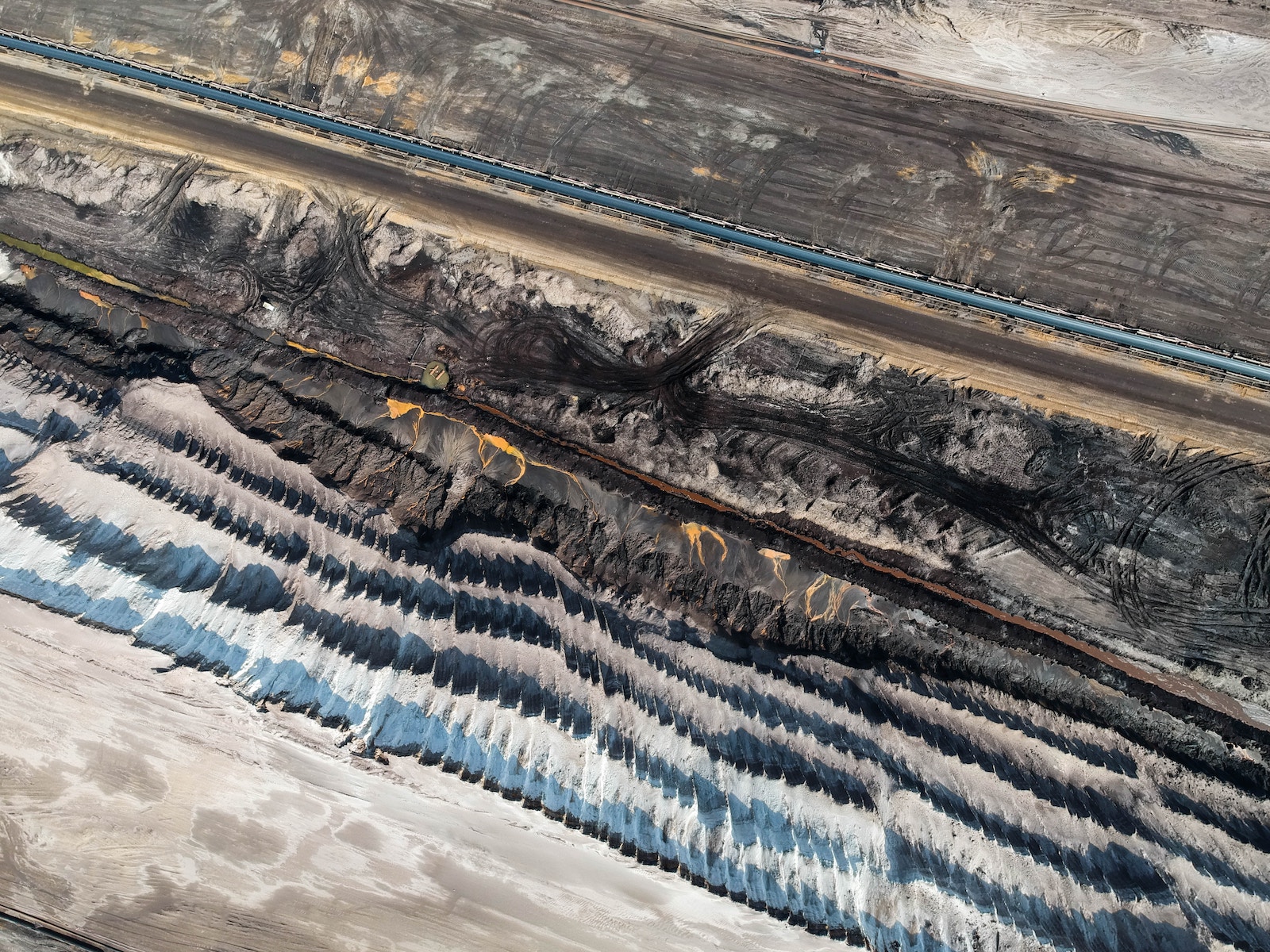In this episode, we dive into the world of climate finance through the voices of two experts working in two different fields of economics in two different parts of the globe.
Johannes Emmerling is a German economist based in Italy and a senior scientist at the RFF-CMCC European Institute on Economics and the Environment and at the Euro-Mediterranean Centre on Climate Change. His research focuses on climate change and energy economics, risk and uncertainty, welfare economics and development. Marc Watum is a development expert from South Africa with a management consulting and project finance background. He is the chairman of Vision 2030 Fund, an African social innovation fund for agriculture, food, and water startups. With them, we explore the cost of climate change and the possible solutions.
Foresight – Deep into the Future Planet, a podcast produced by the CMCC and FACTA.
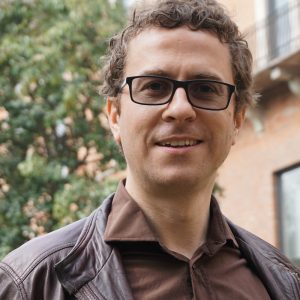 Johannes Emmerling is a scientist at EIEE and co-leads its integrated assessment modelling unit. He was a Senior Researcher at Fondazione Eni Enrico Mattei (FEEM) between 2012 and 2018. Johannes holds a Ph.D. from the Toulouse School of Economics (TSE), an M.A. in Economics from the Free University Berlin and a B.Sc. in Economics from the University of Heidelberg. He was a postgraduate fellow in Development Cooperation at the German Development Institute, Bonn. He has been working amongst others at the Social Science Research Center (WZB) Berlin, the Gesellschaft für Internationale Zusammenarbeit (GIZ), as Lecturer at Université Toulouse 1 Capitole, and as a Consultant for the Organization of American States (OAS), the European Bank for Reconstruction and Development (EBRD), the German Institute of Metrology (PTB), the Asian Development Bank (ADB), and the World Bank. He is co-leading the development of the integrated assessment model WITCH.
Johannes Emmerling is a scientist at EIEE and co-leads its integrated assessment modelling unit. He was a Senior Researcher at Fondazione Eni Enrico Mattei (FEEM) between 2012 and 2018. Johannes holds a Ph.D. from the Toulouse School of Economics (TSE), an M.A. in Economics from the Free University Berlin and a B.Sc. in Economics from the University of Heidelberg. He was a postgraduate fellow in Development Cooperation at the German Development Institute, Bonn. He has been working amongst others at the Social Science Research Center (WZB) Berlin, the Gesellschaft für Internationale Zusammenarbeit (GIZ), as Lecturer at Université Toulouse 1 Capitole, and as a Consultant for the Organization of American States (OAS), the European Bank for Reconstruction and Development (EBRD), the German Institute of Metrology (PTB), the Asian Development Bank (ADB), and the World Bank. He is co-leading the development of the integrated assessment model WITCH.
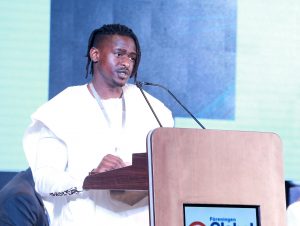 Marc Watum is a development expert with a background in management consulting and project finance. He advised over 1000 entrepreneurs across the EMEA region, while managing private consultancies for governments and leading companies who deal in commodities (trading, mining, supply chains, and logistics) or urban infrastructure and technology. He organized key summits, including MENA Innovation 2018 (Egyptian Ministry of Information and Technology), Vertex Summit 2018, London (Hult International Business School), Global Impact Summit 2019, Nairobi (Supported by the Kenya National Chamber of Commerce & Industry), Vision 2030 Dialogue – UN Food Systems Summit 2021. He is currently the chairman of Vision 2030 Fund, an African social innovation fund for agriculture, food, and water startups.
Marc Watum is a development expert with a background in management consulting and project finance. He advised over 1000 entrepreneurs across the EMEA region, while managing private consultancies for governments and leading companies who deal in commodities (trading, mining, supply chains, and logistics) or urban infrastructure and technology. He organized key summits, including MENA Innovation 2018 (Egyptian Ministry of Information and Technology), Vertex Summit 2018, London (Hult International Business School), Global Impact Summit 2019, Nairobi (Supported by the Kenya National Chamber of Commerce & Industry), Vision 2030 Dialogue – UN Food Systems Summit 2021. He is currently the chairman of Vision 2030 Fund, an African social innovation fund for agriculture, food, and water startups.
Podcast transcript
MARC WATUM: …regenerate nature first and foremost, but also regenerate society in ways that nullify $500 billion annual infrastructure development gaps.
JOHANNES EMMERLING: …and then ultimately being in a kind of carbon free economy with the help of technology solutions, at least temporarily, to maintain a livable climate on the planet.
How much does climate change cost today? This question is not just a matter of numbers. Climate change has huge economic, social and cultural costs. Assessing these costs is challenging yet vital for our planet’s future.
I am Giulia Bonelli, science journalist, and this is Foresight – Deep into the Future Planet, a podcast produced by the CMCC Euro-Mediterranean Centre on Climate Change and FACTA.
Today we dive into the world of climate finance. Through the voices of two experts working in two different fields of economics in two different parts of the globe, we explore the cost of climate change and the possible solutions.
JOHANNES EMMERLING: Let’s say we have $160 per ton of CO2, we can easily multiply this by emissions today, which are around 50 gigatons of CO2 equivalent, and we will get to the value of the total cost of climate change.
This is Johannes Emmerling, a German economist based in Italy, senior scientist at the European Institute on Economics and the Environment and at the Euro-Mediterranean Centre on Climate Change. His main research areas include climate change and energy economics, risk and uncertainty, welfare economics and development. We asked him to quantify the cost of climate change today and in the future. But before giving some numbers, we need to take a step back.
JOHANNES EMMERLING: This assessment and quantification of climate impacts is very challenging from a conceptual point of view: how should it be measured? Because you have a lot of issues there, climate change affects us today already and we see this, for instance, in extreme events that are more likely, or temperature increases or also even just weather extremes, but also things like tropical cyclones, phenomena which have huge impacts already.
Secondly, many of these impacts are not happening today, but rather in the future. So we are talking about mid-century, end of the 21st century and the impacts are magnified over time. So those impacts that occur later on in the Century are expected to be much higher than the ones to date.
And we have to add the spatial issue that impacts are not happening only, let’s say in Milan, Italy, but they’re happening at the global level and we need to aggregate them in some way. And there are many ways there’s a lot of conceptual issues here to aggregate across countries and across individuals. We have people being displaced, let’s say, in Bangladesh, due to sea level rise. And we need to somehow take this into account. And once these three dimensions are acknowledged, we need to have the final step, and this is monetizing these impacts.
Monetizing the impacts of climate change, especially those caused by human activities, is a crucial step to take action. Thanks also to this economic assessment of climate impacts, people can take companies and even governments to court over climate change. It is the realm of climate litigation, a very broad field: there is climate litigation about mitigation, adaptation, loss and damage, and increasingly about finance. By the way, if you are interested, we did a whole episode about climate litigation in episode 7. But let’s go back to the assessment and quantification of climate impacts. Again, Johannes Emmerling.
JOHANNES EMMERLING: And let’s say, for instance, take the example of Bangladesh displaced people who have to relocate, will lose their properties, will lose property values, will lose their businesses on the sea coast. But what is the value of that? So, for that we need to convert these impacts into, let’s say, an economic value so we can, for instance in the case of a litigation case, hypothetically quantify this amount. And all these steps are done by economists together with climate scientists and people working on the ground locally, to then come up with a number. For instance, a very important number is Social Cost of Carbon or SCC, that is basically taking all these steps together to average aggregated into temporal discounted value of what one ton of CO2 that is emitted today causes in terms of total global temporal damages over its lifetime. And its value has been estimated around, let’s say, $20 or so per ton of CO2 over the last ten years. And it has been just over the last year or two that there have been several updates to this, and basically typically increasing this number. So now I think the US is currently in the process of updating the number used for policy making and they have a value of around $158 per ton of CO2 that is caused by one ton of CO2. And then you can in theory multiply this number by the emissions that you cause by your firm, for instance, or an individual, and this gives it an economic damage that is caused by these emissions. But, of course, it is an estimate with a lot of uncertainty. Yet this is the method that we use to estimate this.
These kinds of estimates are one of the major drivers of action. But when it comes to climate policies, responding to different climate emergencies requires different lenses. Sometimes it’s all about reducing our negative impacts on the environment; other times, it’s about mitigation or adaptation. That’s why it’s so important to contextualize climate action.
MARC WATUM: If we try to understand and contextualize, we would notice that at different times in different geographies, there are different needs when it comes to the possible scopes of impact action climate projects.
This is Marc Watum. He is a development expert from South Africa with a management consulting and project finance background. He holds a Master’s in Globalization and Development Studies from the School of Oriental and African Studies in London. In his career, he advised over 1,000 entrepreneurs across the EMEA region (Europe, Middle East, and Africa ).
MARC WATUM: So I’m very big on understanding those taking the time to identify where certain solutions are needed, at which times, but then the next lenses to identify who should be involved in the design of those processes’ interruptions, mitigations, whatever it is that we’re doing to bring us closer to the goal. So I’m very big then on understanding that within a certain context there are stakeholders, there are people, typically those who face the problem every single day, who have an understanding of their environment, their history with their environment, why it is exploited in certain ways and have a direct stake or, you know, we say skin in the game on the solution working. So they would then be willing to own it, to manage it, etc. So that’s my prescription. But it’s more about understanding that top-down approaches or approaches that take a very scientific approach without necessarily integrating culture, community, context, etc., tend to become difficult to manage, difficult to see the desired impact and to be sustainable in the long term.
In this podcast, we explored several times and with several guests the knowledge gaps we still have about some areas of the world. These gaps also include climate science, and science in general, which suffers from a kind of post-colonial attitude. We asked Marc Watum his take on this.
MARC WATUM: I like the word you just used colonial attitude, because in my study and my research, what we found is that a lot of the subjugation, the externality, policy development frameworks, consultation processes, the diffusion of science and integration of it in our day to day lives is arguably done from a Pan-African perspective in a way that reproduces colonialism in modern contexts.
We also are investors when it comes to development, which is another form of neocolonialism. So we still extract, we still benefit more than the beneficiary. Ironically, we call them the recipient of this financing. We end up actually taking. So if that’s what we’re going to do, that’s fine. We are investors. We want our capital to grow, we want our resources, our wealth to increase, and we want to invest responsibly. So there are donation communities, there are, you know, grant making communities, which I’m very thankful for. Breaking down the walls means to synergize in ways that mobilizes capital and includes those groups that we do not consider as credible, knowledgeable, trustworthy as we are in the process.
Marc Watum brought those instances at COP27 in Egypt. He followed the money to show the roots of neocolonialism in startups’ funding. The biggest problem, he claims, is that solutions often do not come from those facing problems every day.
MARC WATUM: I mentioned this statistic while on stage at COP, it’s that in 2019, $620 billion were invested into startups around the world. And for African inflows, only 0.7% of that 620 billion was awarded to African ventures. So already we can ask some questions. Why is it such a small percentage? Is it just factual that there are less proportionally viable businesses? Well, okay, fine. Is it then the case that these businesses are not viable because they are not good? Is it because they don’t make solutions that are needed? No, that’s not the reason. So what is the reason? And I’ve taken the sort of surgical methodological research to understand these investments and why they happened the way they did. And we are able to draw it down to some very particular risk factors that global finance doesn’t enjoy, which again ties to this credit worthiness, trustworthiness, knowledgeability, experience. All of the the pillars we use to merit those who are involved in making decisions in our epistemic community, the leaders of banks, the grant makers, the government banks who make these budgets available and work with other consortiums who are on their level in their region, are very different, are very much more qualified on paper, perhaps much more experienced in managing projects of this size, have track records that validate their experience and their trust to manage these funds. But on the other hand, the solutions we’re looking to invest in do not. So breaking down the walls happens horizontally where these financiers work with others to understand each other’s languages and make the correct kind of capital available. But then it happens vertically where those with the resources need to now integrate centrally into their models, those who are on the ground, those who may not have that level of experience or whatever it is you’re using to judge by, rather understand that they have lived experience. They face these problems every day. They know the terrain, they have every reason for the business or the solution, the innovation to work. It must be successful for the longevity of their own people.
As a scientist expert in climate finance and working in Europe, Johannes Emmerling agrees that the climate economy still suffers a huge disparity at the global level.
JOHANNES EMMERLING: I fully agree that if you look at the global numbers in, for instance, things like energy investments, but also R&D and what solutions are discussed, they are largely concentrated in OECD countries, in the U.S., a few in Europe, now also emerging in BRIC states, especially China. Yet there’s a large disparity at the global level in several points. So for one, investments are of course largely located in these countries. If you think about things like electromobility, an important part of decarbonizing the economy, largely driven by the U.S. and now also partly in Europe, and emerging also in countries like China. But still, concentrated in a few countries. The same for renewables. Also, technology kind of originated in Europe and now moved to the U.S., Canada and China. I mean, these countries probably cover, let’s say, more than 80% of investments in the R&D field.
In terms of transfers – and this is an issue at the COP, there’s the loss and damage mechanism – there have been pledges to invest more in this direction, to find solutions but also to largely deploy solutions. There is money, but, as you know, these pledges have not really been kept by the donor countries over the last year at least. And still they are also quite small. If you look at the impacts from climate change, and those are highly localized in the Global South, due to the different latitudes (and lower latitudes have higher impacts and high degrees and temperature change typically), so impacts are much larger and yet transfers and support for adaptation but also for mitigation is much lower. So there’s a huge discrepancy. And even with the, let’s say the 100 billion pledge from the last COP, it would still be way too low compared to the impact. I’m not sure if this sort of colonial attitude is intended, that’s another question to be discussed. I’m not sure. But for sure, as a de facto situation, it is highly unbalanced.
So, what’s the solution? There are no simple answers or magic recipes. But we need to evolve together, Marc Watum says.
MARC WATUM: I am not particularly interested in some sort of a systemic overhaul that says ‘the way things are now is incorrect, inadequate, and therefore must no longer exist and should be replaced’. I’m saying, ‘let’s evolve together’. And certainly I think there’s a lot of value in pivoting, adapting and moving into the future. We need to fail forward as a global community. And some people’s failures are bigger to measure than others. And where Africa sits on that spectrum is exactly at a nascent stage. So there are developed economies of the world who are sort of trying to right wrongs while you have newly developing economies in the world, in our region, Africa, that have their entire development pathway ahead of them.
There is a vast majority of the world’s arable farming land remaining in the continent. Very significant percentages of the world’s untouched forestry remain in the continent. Immense power generating capacity that is sustainable in the continent, from hydroelectricity to solar to wind, that is all relatively untapped opportunity. So my call to action is rather for Africans to look inward instead of looking at the world and say, ‘You guys have done X, Y, Z, and we don’t want to, you know, succumb to that’. It’s to say, ‘We understand what we can contribute if things are managed correctly, and we’re going to cultivate, nurture projects that reverse our issues at the same time’. So we have a lot of socio economic development challenges that tie into this opportunity. And the big task for our policymakers, our governments, our central banks is to accept investment in ways that allow the population to resolve or reverse a lot of the developmental issues. Over 500 million Africans living below the poverty line as we speak during the pandemic of Covid-19, the hunger statistics, the homelessness statistics were disastrous. So we ask ourselves then, how can we develop correctly? How can we leverage what we have? And the answer there, in my understanding, when we talk about economics, is to recapture a lot of value addition. So I just see it as an immense opportunity.
To seize this opportunity, Marc Watum is the chairman of Vision 2030 Fund, an African pre-seed and seed-stage social innovation fund for agriculture, food, and water startups.
MARC WATUM: We created the Vision 2030 Fund, which was to help accelerate achievement of sustainable development goals and look beyond 2030. There’s a lot of development objectives that have to do with climate. So we have realized, also related to the conversation we’ve had, investors generally are risk averse when it comes to early stage innovations in the region. And we want an early stage because it’s an opportunity to right wrongs, to do things in ways that haven’t been done yet. We want innovation that is marrying fourth generation technologies, interventions, research that has already been done and can be built on. The big buzzwords, blockchain, AI, machine learning, predictive analysis, VR, whatever it is, all the big, you know, big data, fourth gen solutions. And what we’re doing together is we’re building an index that is going to track, numerically speaking, and produce rating systems, the inputs, processes and outputs, every single component contributing to those within the value chain of any given African crops. So we’re starting with crop systems, food systems ultimately going to develop into agri-products in general. And what we do is we understand within the value chain, just say one crop like a banana, there is this entire list of different inputs that go into it before it can be harvested, processed, packaged, distributed and finally arrived at the table of its consumer. And what we want to do with that data is to be able to produce pinpoint accurate ratings that tell us where within the value chain we experience inefficiency. Inefficiency can be wastage, loss, damage over expenditure. Whatever it is that we figure can be made more lean or better in a way that improves the performance of that value chain. We then believe that investing in ventures that directly attack those inefficiencies can result in benefits to the entire development of Africa’s infrastructure to the tune of over $500 billion per year. That is the size of the gap that we’ve measured.
MarcWatum is contributing to fill this gap. With his colleagues at Vision 2030 Fund, he is looking for startups that could potentially return a lot in the value chain to the farmers, the growers, the people managing natural resources, and the local communities. This approach is what in economics is called structural transformation. Agriculture, food production and land management are key areas where bottom-up, structural transformation is needed to address the climate crisis. Another crucial sector is energy, as Johannes Emmerling explains.
JOHANNES EMMERLING: So working on mitigation and mitigation costs for several years, the issue is always that mitigation is not not for free. So it costs to transform the economy to let’s say, to stay below 2 degrees Celsius at the global level or even 1.5 degrees Celsius. Now with 1.5 degrees Celsius, which is much more challenging given that today we’re already at 1.1 degrees Celsius above pre-industrial average temperature, we have to really act very fast. And now the latest estimates are that say we’re talking about 10 to 15 to 20 years in which we really have to significantly reduce emissions and to, let’s say, by mid-century reach net zero emissions, basically going from around 50 gigatons to zero within three decades, which is an unprecedented challenge. And of course, this comes at a cost. And policymakers are, of course, hesitant to implement policies that are very costly to their constituency. And so we wanted to look a bit at what the implications are. For instance, of course, all major fossil oil companies would lose a lot of their demand and therefore business. So there will be huge shifts in the energy firms. If you have oil, if you’re owning a coal mine, well, it might be completely unusable in 10 years. As a capital owner, this is an issue, but capital owners, well, can be compensated or that’s the business, also, there’s a risk in business. The other dimension is the labor subsidized capital and labor. Of course, we have also a lot of jobs in these sectors, especially in some countries like South Africa, like Australia, like Poland, but also the U.S. or some other producers have, let’s say, significant jobs in the energy intensive sector, in coal extraction, in the construction of coal fired power plants, oil extraction, oil distribution and transfer, but also natural gas.
Between 10 to 15 million people work in the coal, oil and natural gas industries today. And one of the most discussed factors influencing political support for climate policies is their impact on these jobs. Considering all the people involved, is the energy transition economically sustainable? According to Johannes Emmerling, the answer is yes. He recently conducted a study with some colleagues exploring the long-term effect of the energy transition on the labor market.
JOHANNES EMMERLING: When doing an assessment in a 1.5 degree Celsius pathway, we found actually, with a bit of surprise, that at the global level energy jobs are expected to even increase when we move to a decarbonized net zero economy by something like even 20 to 50% by mid-century. And this is because these new technologies have a huge job potential. Of course, there will be a lot of losers – and these jobs add up to, let’s say, 10 million jobs that will be lost because they are in fossil fuel extraction. But the gains are even overcompensating them. So the key message is that we need a transition and we need to also make sure a just transition in the sense that losers are compensated or retrained to work on new technologies or new sectors. And it will take time to make this process also so that no one is left behind. So this kind of idea is important there.
According to the Adaptation Gap Report released in 2022 by the United Nations, estimated annual adaptation needs are up to $565 billion by 2050. It is an unprecedented challenge. And to meet this adaptation challenge, we also need to adapt our way of thinking. This includes our perception of money, which has much to do with our present and future planet.
JOHANNES EMMERLING: I think there are many interconnections between climate change and economics as a discipline and the economy as a part of society. So, I mean, living in a market economy, we know that basically most of the decisions by individuals on the markets, on the demand side, but also on the supply side, if you’re working on how capital is utilized, are decided, let’s say, on economic markets.
Ultimately people will adapt and be able to do something. Hopefully we can then reduce the impacts and really hopefully make us free from the fossil fuel dependency that we have today.
MARC WATUM: We are no longer at the mercy of the world’s systems. Rather, we are able to set trends, lead, demonstrate and make sense of all of the capital that flows around, and that people then understand that there are frameworks that can be integrated and that’s not to copy paste from us, but to realize that you can determine for yourself too. And, you know, maybe that requires a cleaner approach to development, that requires cleaner governance systems. What we believe is good, what we pursue, whether that means questioning capitalism or free market systems or maximization of growth of profits. It’s just about understanding what works for our entire planet. And I really believe that financing can be used in the right way to achieve that.
You have listened to Foresight – Deep into the Future Planet, a podcast produced by the CMCC Euro-Mediterranean Centre on Climate Change and FACTA.
The concept, interviews and texts are by Elisabetta Tola and Giulia Bonelli.
The audio editing is by Lisa Lazzarato.
The original music is by Massimo Bassan
The executive producer at CMCC is Mauro Buonocore.
Foresight – Deep into the Future Planet, is available on climateforesight.eu and wherever you listen to your podcasts.
Photo credits: Free public domain CC0 photo

